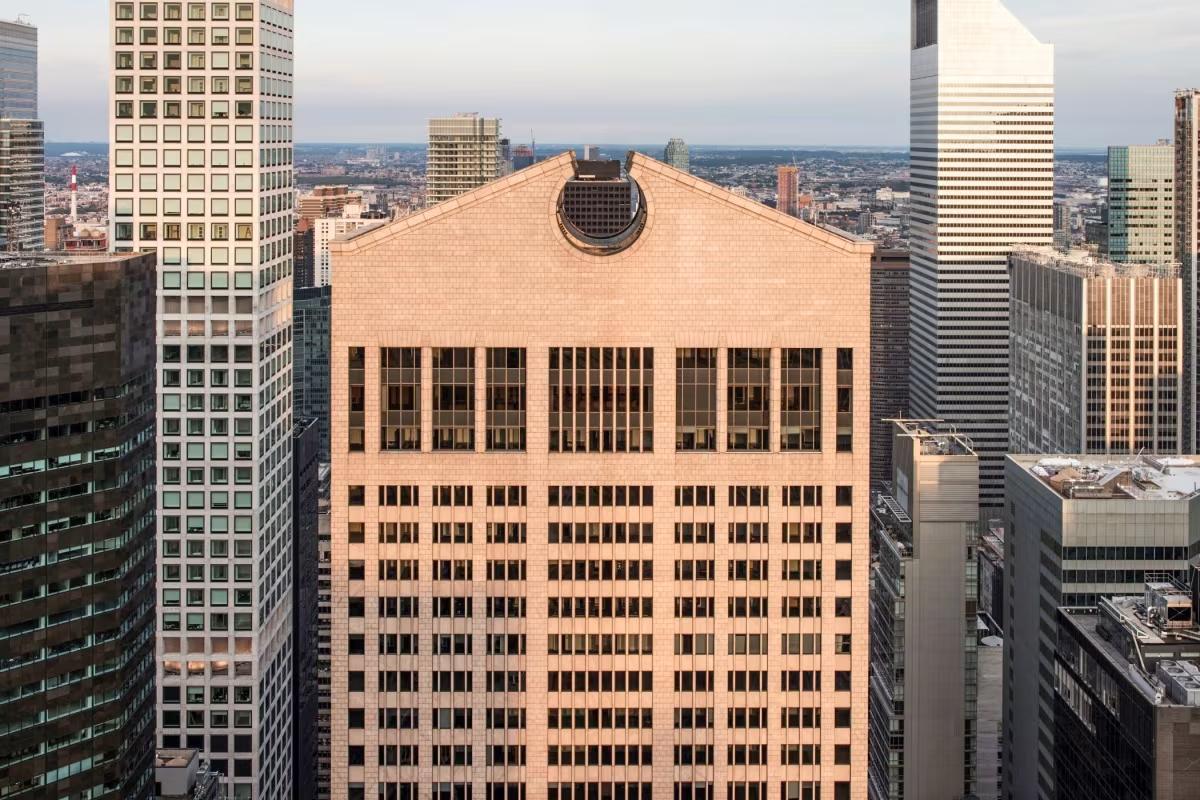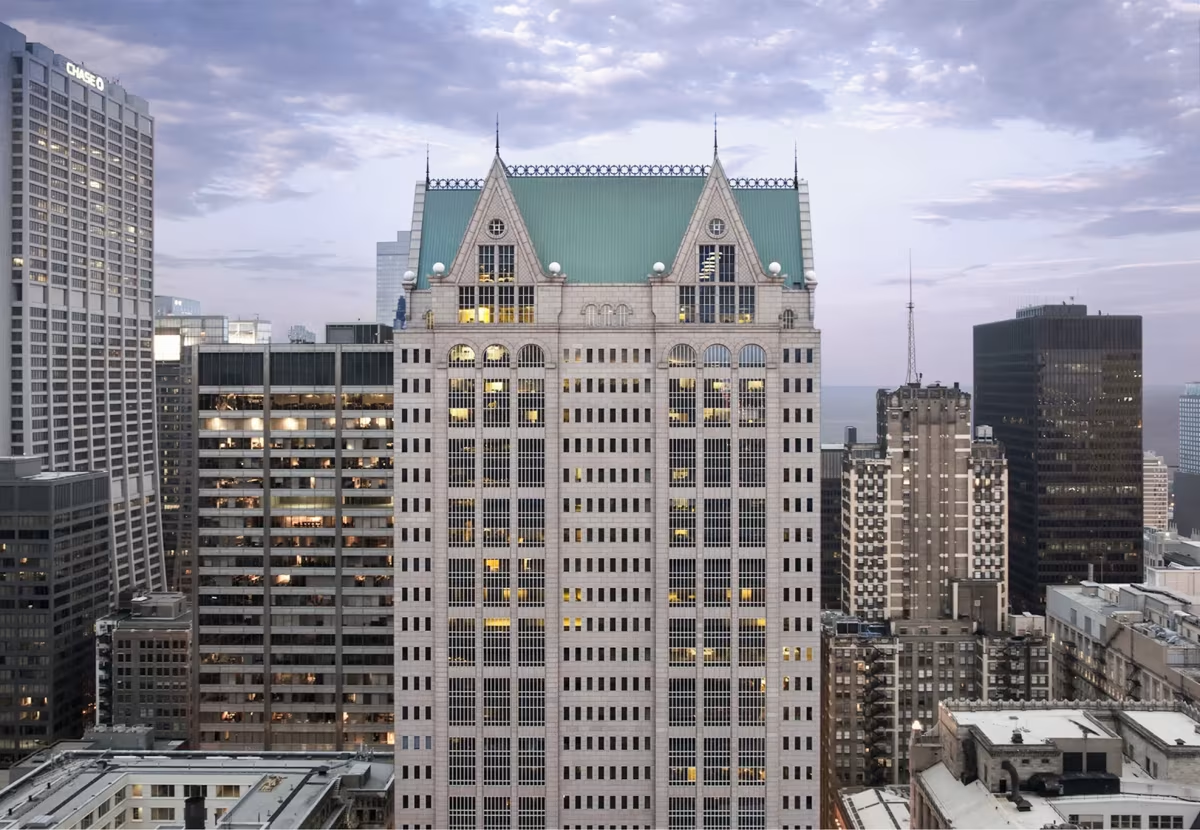550 Madison Avenue vs 190 South LaSalle Street


Comparing the 550 Madison Avenue and the 190 South LaSalle Street is an interesting exercise, because even though they are located in different cities (New York, NY and Chicago, IL), both were designed by Johnson/Burgee Architects and finished within within 3 years of each other. This gives us the chance to see how the same architect's ideas were expressed in different urban contexts almost simultaneously.
Height & Size
These two towers present an interesting contrast in their proportions. The 550 Madison Avenue rises higher at 646ft (197m), while the 190 South LaSalle Street reaches 574ft (175m). However, the 190 South LaSalle Street accommodates more floors with 40 levels above ground, compared to 37 floors in the 550 Madison Avenue.
This suggests different approaches to interior space design. The 550 Madison Avenue has an average floor-to-floor height of approximately 5.3m, while the 190 South LaSalle Street has more compact floors averaging around 4.4m each. The taller building's more generous floor heights might indicate grander interior spaces, higher ceilings, or different programmatic requirements.
These different proportions likely reflect the specific needs each building was designed to serve, whether driven by zoning regulations, client requirements, or the intended use of the spaces within. The contrast shows how architects can achieve different spatial experiences even when working with similar overall building scales.
Architectural Style
Both the 550 Madison Avenue and the 190 South LaSalle Street were designed in line with the aesthetic conventions of the Postmodernism style.
At the time, this style was at the height of its popularity. So Johnson/Burgee Architects followed what was in many ways expected at the time, producing designs that fit comfortably within contemporary architectural norms rather, than breaking with convention.
Uses
Both the 550 Madison Avenue and the 190 South LaSalle Street were designed to serve as commercial towers, and that has remained their main use since their completion, serving similar roles in the urban fabric.
Both towers provide significant parking capacity, with 550 Madison Avenue offering 20 spaces and the 190 South LaSalle Street offering 55.
Structure & Facade
Both the 550 Madison Avenue and the 190 South LaSalle Street rely on a Frame structural system.
A frame structure uses a grid of columns and beams to carry the building's loads. This frees the walls from structural duties, allowing for flexible floor plans and larger windows.
They also employ the same type of facade, a Modular facade.
A modular facade is made of prefabricated panels, sometimes resembling stone or masonry, combined with smaller windows. It provides variety while maintaining efficiency in installation.
| 550 Madison Avenue | 190 South LaSalle Street | |
|---|---|---|
| Johnson/Burgee Architects | Architect | Johnson/Burgee Architects |
| 1981 | Construction Started | 1985 |
| 1984 | Year Completed | 1987 |
| Postmodernism | Architectural Style | Postmodernism |
| Commercial | Current Use | Commercial |
| 37 | Floors Above Ground | 40 |
| 197 m | Height (m) | 175 m |
| 63,650 m² | Usable Area (m²) | 74,209 m² |
| 25 | Number of Elevators | 20 |
| Frame | Structure Type | Frame |
| Steel | Vertical Structure Material | Steel |
| Concrete And Steel | Horizontal Structure Material | Steel, Concrete |
| Yes | Facade Structural? | No |
| William Crow Construction, And HRH Construction | Main Contractor | Turner Construction Company |
| American Telephone & Telegraph | Developer | The John Buck Company |
| Leslie E. Robertson Associates | Structural Engineer | Cohen Barreto Marchertas |
| Evelyn Beatrice Longman, And Dorothea Rockburne | Collaborating Artist | Anthony Caro, And Helena Hemmarck |
| NY | State | IL |
| New York | City | Chicago |
| 550 Madison Avenue | Address | 190 South LaSalle Street |